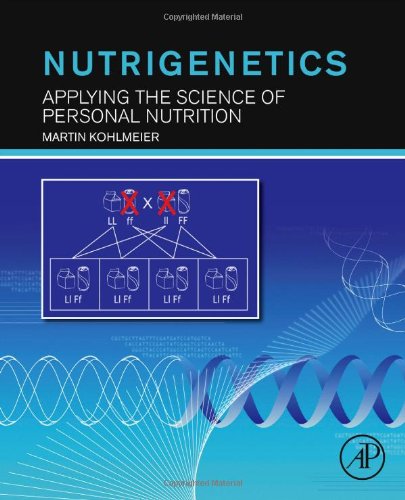

Most ebook files are in PDF format, so you can easily read them using various software such as Foxit Reader or directly on the Google Chrome browser.
Some ebook files are released by publishers in other formats such as .awz, .mobi, .epub, .fb2, etc. You may need to install specific software to read these formats on mobile/PC, such as Calibre.
Please read the tutorial at this link: https://ebookbell.com/faq
We offer FREE conversion to the popular formats you request; however, this may take some time. Therefore, right after payment, please email us, and we will try to provide the service as quickly as possible.
For some exceptional file formats or broken links (if any), please refrain from opening any disputes. Instead, email us first, and we will try to assist within a maximum of 6 hours.
EbookBell Team

4.4
92 reviewsNutrigenetics: Applying the Science of Personal Nutrition provides a fully referenced, readable guide to understanding the rationale and importance of nutrigenetic applications and explains why single nutrition recommendations will not fit everybody or even a majority of modern humans.
This books explains how genetic variation shapes individual nutrition requirements and sensitivities, presents questions to ask about reported gene-nutrient interactions, and what needs to be done before putting nutrigenetic tests to practical use. This book blends key concepts from the fields of genetics, biochemistry, epidemiology, public health, and clinical medicine to give a rich perspective on the genetically diverse nutritional needs and sensitivities of individuals in health and disease.
A steadily increasing number of people order genetic tests to find out what they should eat for better health, well being and performance, and an even greater number asks their healthcare providers about such tests. Most of the currently offered tests are not grounded in current knowledge, often absurdly so, but few professionals can explain why they are misguided. On the other hand, there are more evidence-supported genetic variants that can guide nutrition decisions, but again most healthcare providers know little about them, much less use them in their daily practice. There is a great need for a solidly evidence-based yet accessible book that explains the science of nutrigenetics and provides the tools to evaluate new nutrigenetic tests.